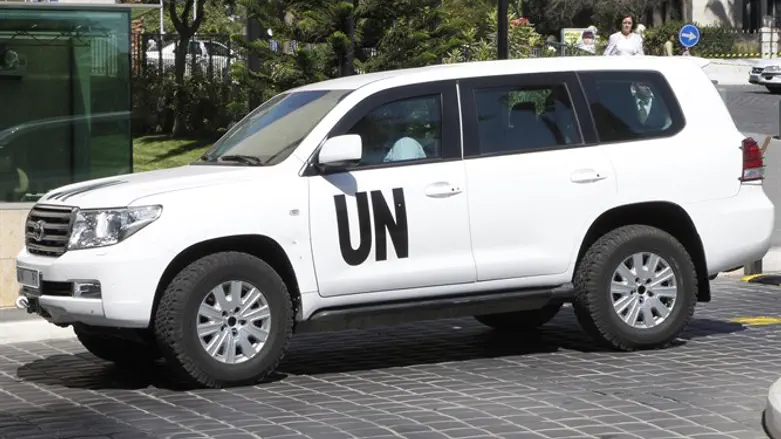
Russia on Thursday dismissed as "unconvincing" the findings of a UN-led investigation showing that Syrian forces had carried out three chemical attacks, saying that no sanctions should be imposed.
"We believe that the proof is not there for any punitive action to be taken. It's simply not there," Russian Ambassador Vitaly Churkin told reporters following a closed-door Security Council meeting, according to the AFP news agency.
A joint United Nations-Organization for the Prohibition of Chemical Weapons (OPCW) panel concluded that government forces carried out three chlorine gas attacks on villages in 2014 and 2015.
It was the first time an international probe blamed President Bashar Al-Assad's forces after years of denial from Damascus.
But Churkin told the council that the findings were not strong enough to trigger sanctions.
The conclusions "in most cases... are not substantiated by sufficient testimonial basis, first of all material proof, they are full of contradictions and therefore unconvincing," he said, according of a text of his remarks quoted by AFP.
The findings are "not definitive, have no legally binding force and cannot serve as accusatory conclusions for taking legal decisions," added the Russian envoy.
Britain and France pressed demands for sanctions, arguing that UN resolutions provided for such action in response to the use of chemical weapons.
"Those responsible for using chemical weapons must be sanctioned. There is no other way," French Ambassador Francois Delattre told reporters.
"There should be accountability for every single person involved in any use of chemical weapons in Syria or indeed anywhere else," British Ambassador Matthew Rycroft said.
Assad's government has repeatedly denied using toxic gas on the battlefield, and argues that claims that it used chemical weapons are only meant to "serve political agendas".
Government helicopters flying from two regime-controlled air bases dropped chlorine barrel-bombs on the villages of Qmenas, Talmenes and Sarmin, in rebel-held Idlib province, the panel's latest report said.
Chlorine use as a weapon is banned under the Chemical Weapons Convention, which Syria joined in 2013 under pressure from Russia, Assad's ally.
Although previous OPCW reports concluded that toxic gases were used as weapons in Syria's five-year war, they stopped short of identifying the perpetrators.
The panel identified the 253 and 255 squadrons of the 63rd helicopter brigade, which flew from the Hama and Humaymim air bases, and the 628 squadron based in Humaymim as the perpetrators.
The UN-OPCW panel also found that the Islamic State group used mustard gas as a weapon in August 2015.
"We stand firmly behind the report and its conclusions," Virginia Gamba, who led the investigative panel, told reporters.
Russia also rejected a U.S. proposal to extend the panel's mandate – which ends on Monday – for a year, arguing that more time is needed to discuss the experts' future work.
The probe should be broadened to look at chemical weapons use by extremist groups and in neighboring Iraq, Churkin said.
The Security Council set up the so-called joint investigative mechanism (JIM) in August 2015 to determine who was behind the chemical attacks.
Syria agreed to destroy its chemical weapons under the 2013 deal brokered by Moscow and Washington, but the Organization for the Prohibition of Chemical Weapons (OPCW) has since found chlorine has been "systematically and repeatedly" used as a weapon.
AFP contributed to this report.
